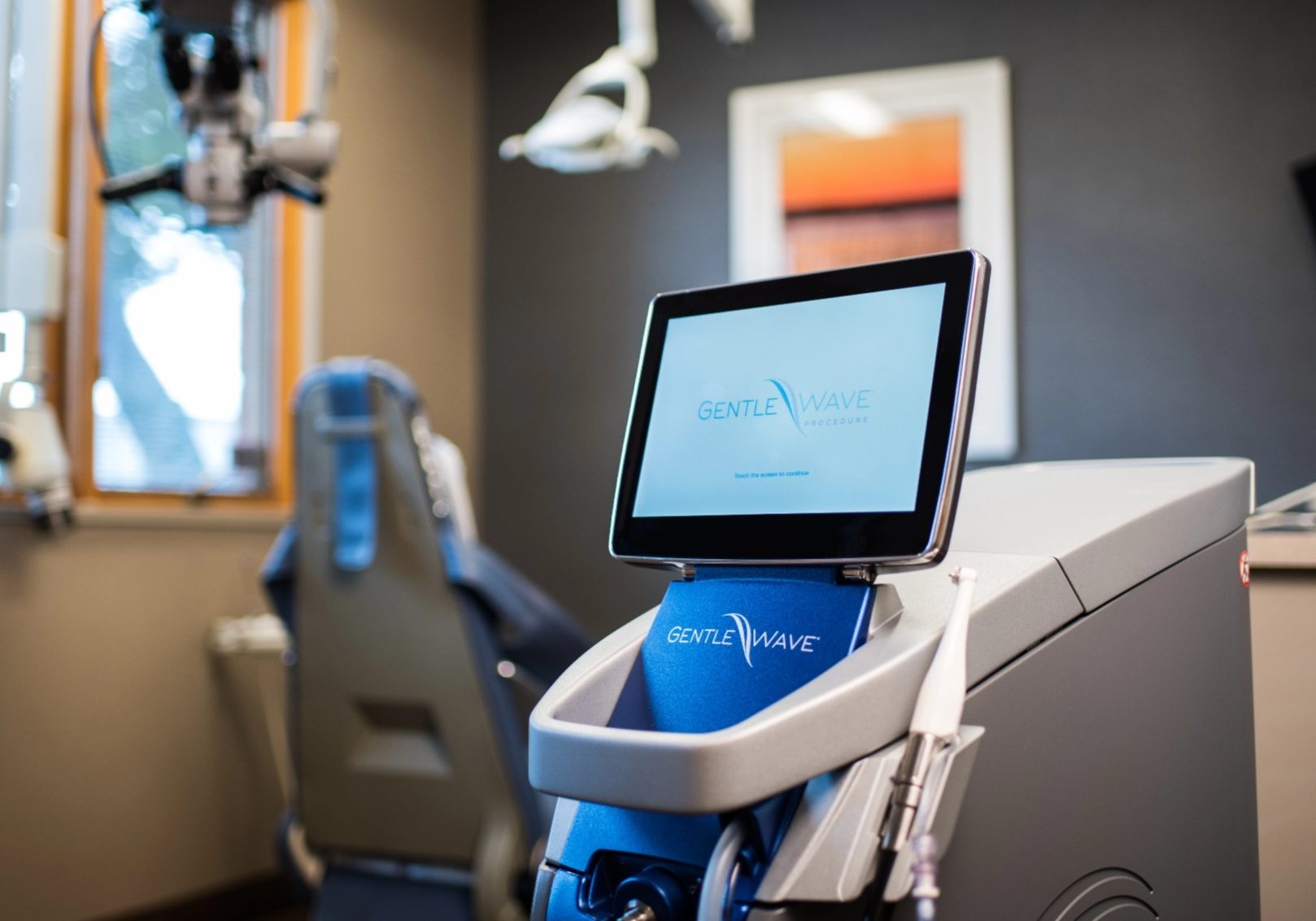We’ll treat you like our own, from the time you schedule your visit until you leave our office feeling better.
If you have questions regarding your dental benefits, call us prior to scheduling your appointment. We participate with most major dental benefit companies and several PPO plans. We’ll work closely with you to coordinate the payment of your dental benefits and submit the necessary forms to your insurance company. Any unpaid insurance balances will become your responsibility 45 days after the treatment date.







Endodontic fees vary depending on the complexity of the treatment needed. Before any treatment is performed you can request an estimate of the anticipated fees. Full payment of the fee or estimated co-payment is required at the time that your treatment is performed.
Bring your treatment referral slip, any x-rays, identification, insurance card, and list of medications you’re presently taking to your appointment.
Please do not take any pain medications 4-6 hours before your scheduled appointment time to avoid masking symptoms. Notify our staff at that time if you’re required to take an antibiotic prior to dental treatment for any health conditions.
A minor must be accompanied by a parent or legal guardian to discuss treatment options with our doctor.
Each treatment is unique depending on your condition – procedure duration and recovery times will vary. You can read more about your specific treatment here.
Our Patient Care Coordinator (PCC) will give you personal attention to review your medical history, take your blood pressure, discuss your symptoms, and answer any questions before introducing you to your doctor.
Our Business Assistants will greet you at the front desk and help you complete the registration process with our office.
Our Patient Care Coordinator (PCC) will review post-op instructions with you immediately after your procedure. You can also expect a follow-up text from our office following your treatment. In most cases, a return visit to your general dentist will be necessary for permanent restoration of your filling or crown.
If you’re having a non-surgical procedure, your doctor may request a follow-up visit. This could be any time between three to twelve months post-treatment. If you’re having endodontic surgery, you’ll return for suture removal one week after surgery.
Yes, you can go back to work (or school) after a root canal treatment. Your appointment will be similar to a normal restorative procedure like a crown or a filling. While you may be numb after your procedure, there’s no reason why you should not be able to resume your normal daily activities.
If you’re experiencing pain or have questions about your treatment, please contact the office. Loss of temporary filling or a temporary crown can also be addressed by calling the office during normal business hours. If you need to be seen we’ll make every attempt to add you to our schedule the same day.
With modern technology and anesthetics, you won’t experience any more pain than if you went to have a cavity filled. The pain from a severe toothache, often caused by damaged tissues in the tooth, can be easily remedied when an endodontist removes the damaged tissue through root canal treatment.
This false claim was based on long-debunked and poorly designed research conducted nearly a century ago. There is no valid, scientific evidence linking root canal treatment to disease elsewhere in the body.
Saving your natural teeth, if possible, is always the best option. Nothing artificial can replace the look or function of a natural tooth so it’s important to always consider root canal treatment as an option. Many root canal-treated teeth last a lifetime. Replacing an extracted tooth with a bridge or implant requires more time in treatment and may result in further procedures to neighboring teeth and supporting tissue.
Please call one of our four locations to make an appointment. Our staff will review further instructions specific to your treatment during your call.
If you have questions regarding your dental benefits, call us prior to scheduling your appointment. We participate with most major dental benefit companies and several PPO plans. We’ll work closely with you to coordinate the payment of your dental benefits and submit the necessary forms to your insurance company. Any unpaid insurance balances will become your responsibility 45 days after the treatment date.







Endodontic fees vary depending on the complexity of the treatment needed. Before any treatment is performed you can request an estimate of the anticipated fees. Full payment of the fee or estimated co-payment is required at the time that your treatment is performed.
Bring your treatment referral slip, any x-rays, identification, insurance card, and list of medications you’re presently taking to your appointment.
Please do not take any pain medications 4-6 hours before your scheduled appointment time to avoid masking symptoms. Notify our staff at that time if you’re required to take an antibiotic prior to dental treatment for any health conditions.
A minor must be accompanied by a parent or legal guardian to discuss treatment options with our doctor.
Each treatment is unique depending on your condition – procedure duration and recovery times will vary. You can read more about your specific treatment here.
Our Patient Care Coordinator (PCC) will give you personal attention to review your medical history, take your blood pressure, discuss your symptoms, and answer any questions before introducing you to your doctor.
Our Business Assistants will greet you at the front desk and help you complete the registration process with our office.
Our Patient Care Coordinator (PCC) will review post-op instructions with you immediately after your procedure. You can also expect a follow-up text from our office following your treatment. In most cases, a return visit to your general dentist will be necessary for permanent restoration of your filling or crown.
If you’re having a non-surgical procedure, your doctor may request a follow-up visit. This could be any time between three to twelve months post-treatment. If you’re having endodontic surgery, you’ll return for suture removal one week after surgery.
Yes, you can go back to work (or school) after a root canal treatment. Your appointment will be similar to a normal restorative procedure like a crown or a filling. While you may be numb after your procedure, there’s no reason why you should not be able to resume your normal daily activities.
If you’re experiencing pain or have questions about your treatment, please contact the office. Loss of temporary filling or a temporary crown can also be addressed by calling the office during normal business hours. If you need to be seen we’ll make every attempt to add you to our schedule the same day.
With modern technology and anesthetics, you won’t experience any more pain than if you went to have a cavity filled. The pain from a severe toothache, often caused by damaged tissues in the tooth, can be easily remedied when an endodontist removes the damaged tissue through root canal treatment.
This false claim was based on long-debunked and poorly designed research conducted nearly a century ago. There is no valid, scientific evidence linking root canal treatment to disease elsewhere in the body.
Saving your natural teeth, if possible, is always the best option. Nothing artificial can replace the look or function of a natural tooth so it’s important to always consider root canal treatment as an option. Many root canal-treated teeth last a lifetime. Replacing an extracted tooth with a bridge or implant requires more time in treatment and may result in further procedures to neighboring teeth and supporting tissue.
Meet the Doctors
Decades of combined experience and unmatched dedication to providing compassionate care.

Dr. Young Bin Bok
DDS, MS

Dr. Carolina Cucco
DDS, MS, PhD
Active Diplomate of the American Board of Endodontics

Dr. Steven Edlund
DDS, MS
Active Diplomate of the American Board of Endodontics

Dr. Fabian Andres Rodriguez Hidalgo
DMD, MS

Dr. Christopher McWatters
DDS, MS

Dr. Nicholas Pelachyk
DDS, MS

Dr. Andrew Racek
DDS, MS
Active Diplomate of the American Board of Endodontics

Dr. Michael Shapiro
DMD, MS
Active Diplomate of the American Board of Endodontics

Dr. Dmitry Vodopyanov
DDS, MS
Active Diplomate of the American Board of Endodontics

Technology
We adopt technology that helps us make better diagnoses and treatment decisions to help you feel better, faster.